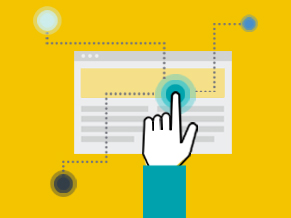How Interactive Content Softens the Discovery Process—And Why It Matters
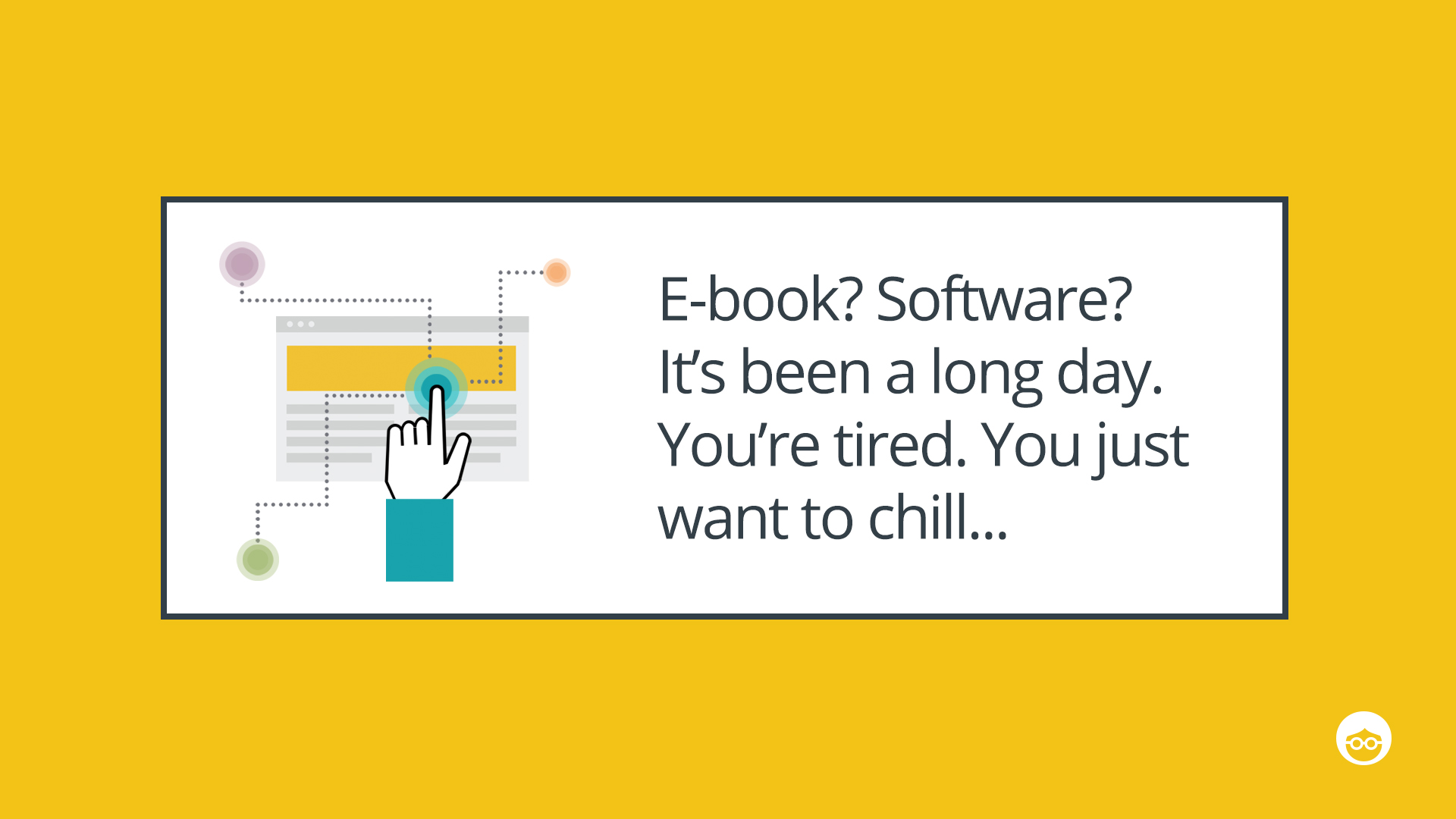
It’s 6pm, and you just got home from work. You grab your phone, a cold drink, and settle into the sofa. Time to check your favorite online news site.
A headline grabs your eye:
“How to Reduce Your Risk of Credit Fraud in 5 Steps.”
Wow. Just last week, you reported a false charge on your credit card. This may be the information you need. Now, you enter discovery mode. You’re eager to know more. You’re primed to hear what the advertiser has to say. You click on the link, and then this appears:
“Download our free e-book and discover how our cutting-edge software can protect your financial future!”
E-book? Software? It’s been a long day. You’re tired. You just want to chill. So what do you do next? Close the browser and head to the kitchen to grab another drink.
As a performance marketer, you’re on the flipside of this coin every single day. It’s your greatest challenge: customers who don’t engage leads that don’t convert.
At Outbrain, we’re in the business of delivering content 24 hours a day. In 2017, we delivered 3 trillion content recommendations (!!!), resulting in over 900 billion completed conversions!
Along the way, we’ve learned a thing or two about the type of content that gets readers excited. We’ve gathered insights into what it takes to move the reader from discovery mode to customer. So we’ve compiled a few tips to help you optimize the content discovery experience, and get more completed conversions.
-
Ease your audience into the native advertising funnel.
Your customers are overloaded with ads. Studies show that the average consumer is exposed to up to 10,000 brand messages every day. Let’s face it: You’re competing in a marketplace that’s beyond saturated.
When a prospect is at the top of your funnel, you won’t move them further with heavy content that they’re not ready for, such as long e-books, high-level white papers or technical videos. Instead, you want to capture their interest and increase their awareness with enticing, easy-to-digest content.
We’re not talking about clickbait. We’re talking about tempting your audience so they’ll want to discover more about your brand by using powerful infographics, engaging blog posts and fun, interactive experiences. Don’t go in with the big guns. Rather, start light and gentle—and take it from there.
-
Challenge your audience. Turn your content into a game.
Make it gentle but don’t make it too easy. People like to be challenged. They like to be involved. Give your audience a reason to have a stake in your content. How? By making it fun and interactive, and by putting the user at the center of the experience.
According to a study by Ion Interactive and the Content Marketing Institute, 66% of content marketers said that their conversion rate had improved since using interactive content. There are many ways that performance marketers can take dry content and turn it into an engaging, personal and relevant experience.
Think mortgages. Researching a mortgage is a high-stake activity for most people. The average consumer will probably only ever take out one mortgage, and it represents a huge chunk of their financial stability. Heavy stuff!
If you’re a mortgage broker trying to drive potential customers to your website, which of the following online content ads do you think will be more effective?
This one:
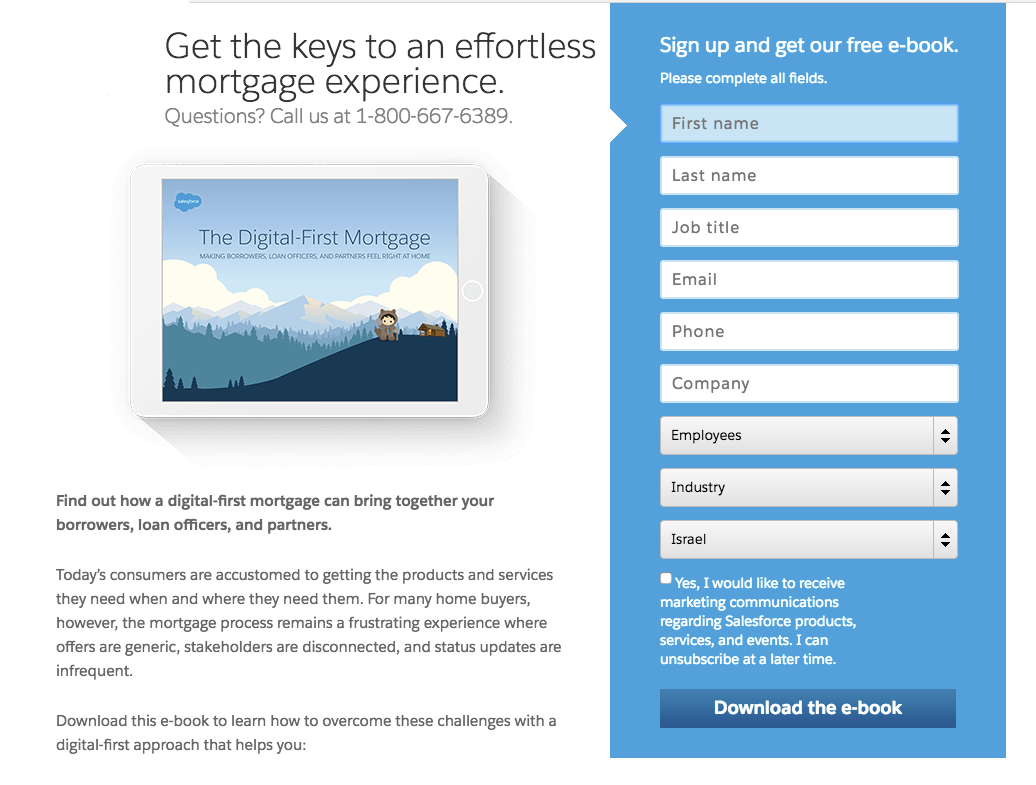
Or this one:
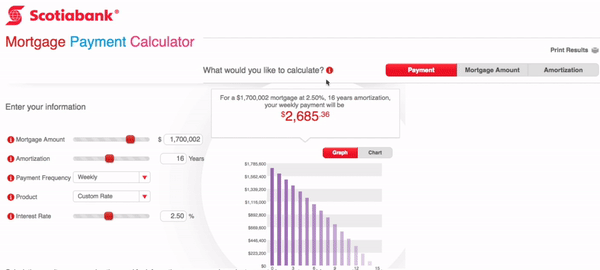
Challenging content takes many forms. Games, contests, quizzes, calculators and infographics are the most popular interactive content among performance marketers.
-
If they don’t come to you, go to them.
A major challenge in performance marketing is reaching the right audience. Some audience segments are more difficult to target than others.
For example, suppose you own a shoe store specializing in large sizes. Unfortunately, foot size data is not readily available as targeting criteria. You really have no way of locating large-footed customers online.
Here’s where content marketing comes in. Let’s say you create a piece of content that prompts readers to provide their shoe size. You could do that with a quiz: “What Your Shoe Size Says About You,” which naturally includes the question: “What is your shoe size?” Voila! Now you have data about your readers’ shoe sizes, and you can retarget relevant prospects with larger shoe sizes via native ad campaigns.
When you create engaging, interactive content, you create opportunities for your audience to give you their data. Then, you can use it to track your performance marketing in real time and optimize your objectives on the go.
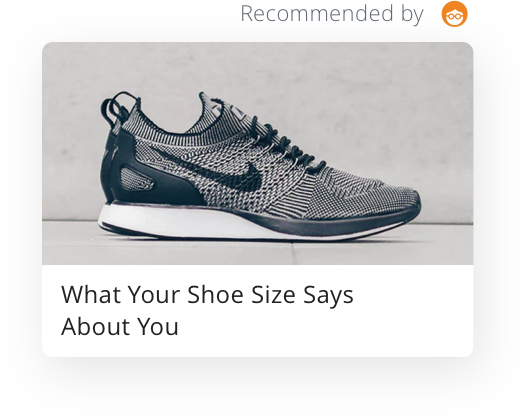
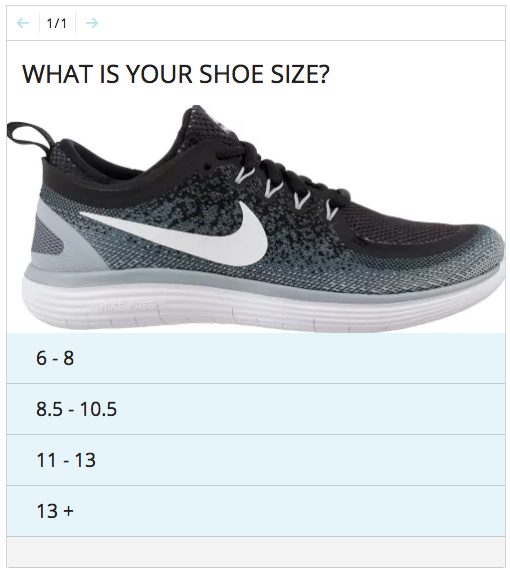
How We Do It at Outbrain
We know that people love interactive content, so we try to provide it whenever we can. In particular, interactive content really helps us explain what the Outbrain native solution is all about to potential customers. So we created this landing page.
Visitors to the page can play with the Outbrain solution. They are invited to copy and paste a URL of their blog post or article. Then they instantly see how their link would look as recommended content in the Outbrain widget. Cool, right?
But there’s a problem. On a desktop, it’s really easy for potential customers to copy and paste a URL into the wizard. But on mobile devices, it’s not. This created a challenge. How can we give our customers an engaging experience of the way Outbrain works on mobile as well as the desktop?
So we built a mobile demo that asks the user to choose a content category rather than entering a URL. This way, they can see an example of the type of content we recommend around the web without the hassle of copy/paste.

Use Content to Get Data. Use Data to Get Customers.
Sometimes online readers are actively looking for a direct solution, service or answer. But more often than not, readers are in content discovery mode. They’re leaning back, browsing along, clicking on interesting content, looking for an article or post that will amuse, entertain or teach them something interesting.
As a performance marketer, this is the stage where you are competing for the reader’s attention in a dynamic and saturated content marketplace. Your aim this early in the funnel is to get the data you’re looking for without aggravating the reader—and with the lowest possible bounce rate.
Remember, every signal you receive from this initial engagement can be leveraged further down the native advertising funnel. Increase your potential for successful engagement by creating content that is different, exciting, out of the box—and interactive.
